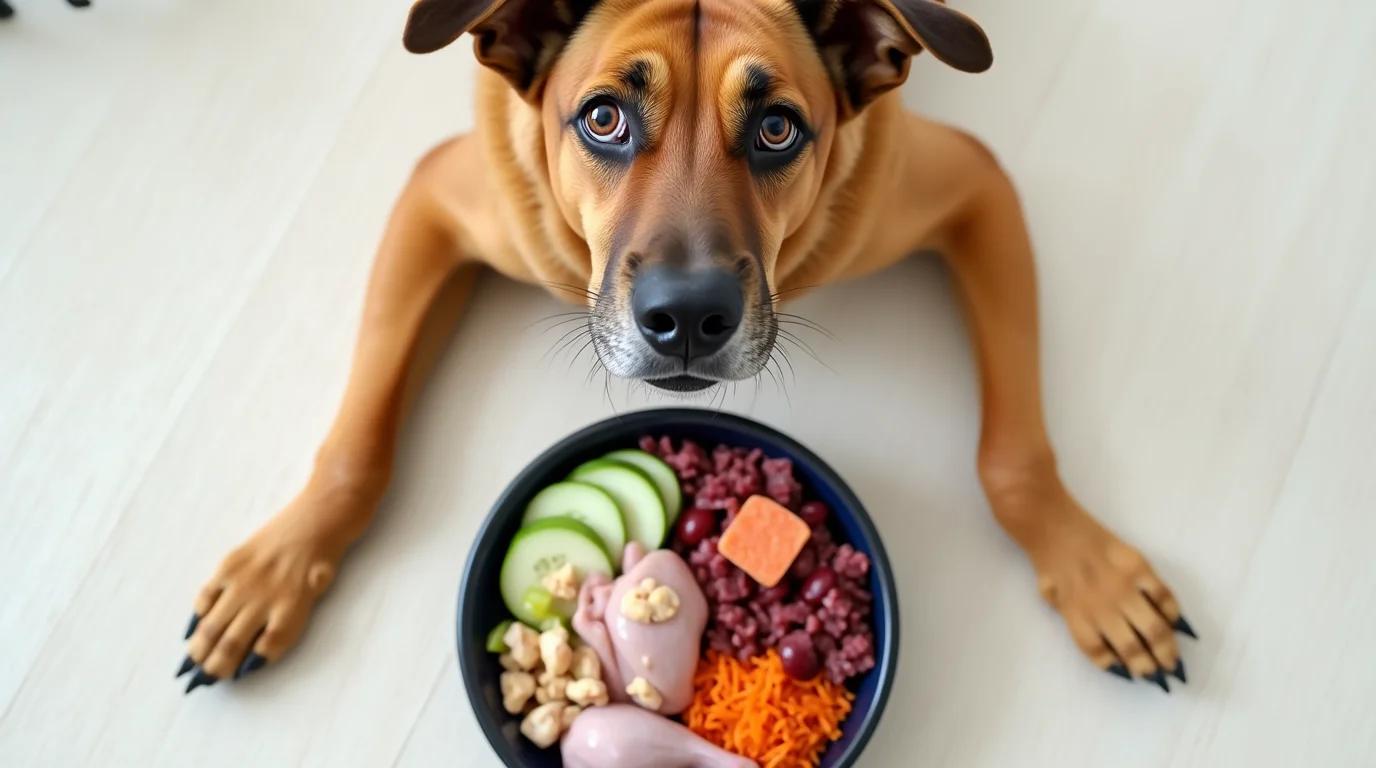Every dog owner wants their furry companion to live a long, happy, and healthy life. The foundation of a dog’s well-being starts with proper nutrition.
But with countless pet food options on the market, finding the healthiest food for dogs can be overwhelming. Should you opt for commercial kibble, raw food, or homemade meals? Which ingredients are essential, and which should people avoid?
This guide will break down the best food choices for dogs, ensuring your pet gets the optimal nutrients for a vibrant, energetic life.
Table of Contents
What Makes the Healthiest Food for Dogs?
The healthiest food for dogs should be rich in essential nutrients that promote overall well-being. A balanced canine diet should include:
- High-quality proteins – Essential for muscle development and energy.
- Healthy fats – Support brain function and a shiny coat.
- Vitamins and minerals – Aid in immune health and organ function.
- Fiber – Supports digestion and gut health.
- Hydration – Water plays a crucial role in keeping dogs healthy.
Choosing natural, high-quality ingredients ensures your dog gets all the necessary nutrients without unnecessary fillers or artificial additives.
1. High-Quality Protein: The Building Block of Health
Protein is the most vital macronutrient for dogs, as it supports muscle growth, tissue repair, and overall body function. The best protein sources include:
- Lean meats – Chicken, turkey, beef, and lamb provide essential amino acids.
- Fish – Salmon, sardines, and mackerel are rich in omega-3 fatty acids.
- Eggs – A great source of protein and additional vitamins.
- Organ meats like liver, kidney, and heart pack nutrients such as vitamin A and iron.
The healthiest food for dogs should contain real, whole protein sources rather than by-products or artificial additives.
2. Healthy Fats for Energy and a Shiny Coat
Fats are a crucial energy source and help maintain skin health, brain function, and overall vitality. Some of the best fat sources include:
- Fish oil – Provides omega-3 fatty acids, which reduce inflammation.
- Coconut oil – Helps with digestion and supports skin health.
- Flaxseed oil – Promotes a healthy coat and reduces dryness.
- Chicken fat – A natural source of omega-6 fatty acids.
Including the right fats in your dog’s diet ensures a well-balanced approach to long-term health.
3. Nutrient-Packed Fruits and Vegetables
Dogs benefit from a variety of fruits and vegetables, which provide essential vitamins and minerals. Some of the best options include:
- Carrots – Rich in beta-carotene for eye health.
- Blueberries – Loaded with antioxidants that support immune function.
- Pumpkin – A natural source of fiber that aids digestion.
- Sweet potatoes – High in vitamin A, essential for skin and vision.
- Spinach – Provides iron, which supports red blood cell production.
Adding fresh produce to your dog’s diet in moderation can enhance overall nutrition.
4. Whole Grains vs. Grain-Free Diets
An ongoing debate exists about whether grains belong in a dog’s diet. While some dogs do well on grain-free diets, others benefit from whole grains.
Healthy grain options include:
- Brown rice – A good source of digestible carbohydrates.
- Oats – Helps support heart health and digestion.
- Quinoa – A protein-rich alternative to common grains.
- Barley – Contains fiber that promotes gut health.
If your dog has grain sensitivities, consider alternatives like lentils or chickpeas.
5. Hydration: The Most Overlooked Nutrient
Water is the most crucial yet often overlooked aspect of a dog’s diet. Proper hydration is essential for:
- Digestion and nutrient absorption
- Joint lubrication
- Body temperature regulation
Ensure your dog has access to clean, fresh water. If feeding dry kibble, consider supplementing with wet food or homemade broths to increase moisture intake.
6. Choosing Between Homemade and Commercial Dog Food
Many pet owners struggle to decide between homemade meals and commercial dog food. Each option has its pros and cons:
- Homemade Dog Food – Provides full control over ingredients but requires proper nutritional balance.
- Choose commercial dog food carefully to avoid fillers and artificial preservatives, even though it offers convenience.
When selecting commercial brands, look for those with natural, whole-food ingredients and minimal processing.
7. Foods to Avoid at All Costs
Certain foods are highly toxic to dogs and should never be included in their diet:
- Chocolate – Contains theobromine, which is toxic to dogs.
- Grapes and raisins – Can cause kidney failure.
- Onions and garlic – Damage red blood cells and cause anemia.
- Avocado – Contains persin, which can be harmful.
- Xylitol – A sugar substitute that can be deadly to dogs.
Always check food labels and avoid feeding human foods that could be harmful to your pet.
Conclusion: Prioritizing the Healthiest Food for Dogs
The foundation of your dog’s health begins with a well-balanced diet. Choosing the healthiest food for dogs means prioritizing high-quality proteins, healthy fats, fiber, and hydration. No matter if you pick a raw diet, homemade meals, or store-bought food, make sure your pet gets the nutrients they need. This helps them live a long and happy life.
By making informed decisions about your dog’s nutrition, you’re not just feeding them—you’re giving them the best chance at a vibrant, fulfilling life.







